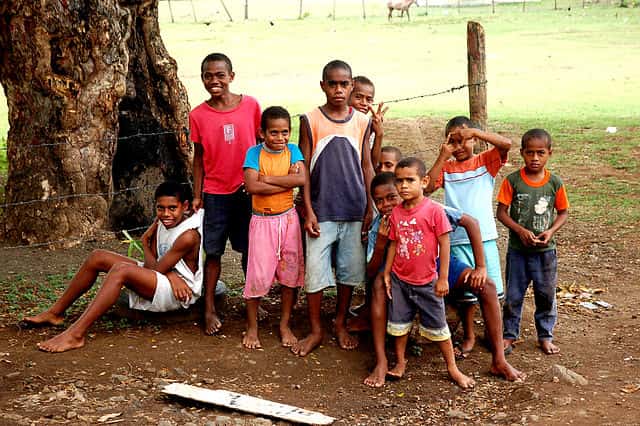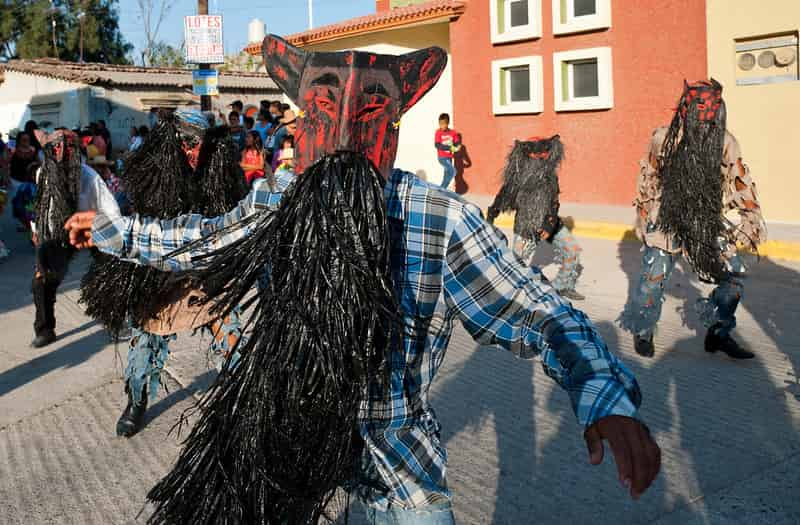The origin of the Fijian people and their relation to the African continent isn’t straightforward. There’s an interplay between immigration and genetics that led to their existence. Part of the reason why they are associated with Africa is that some trace their origins there. Others are traced from South-East Asia. That said, some of these accounts are disputed. In this article, we explore the question, are Fijians black?
Buy a swimming costume at Amazon.
Become an insider. Subscribe to our newsletter for more top trending stories like this!
People Also Read: 10 Black Male Influencers to Follow Right Now
Are Fijians Black?
The Fijian population is thought to have migrated from Africa. They settled in Melanesia and are known as Melanesians. This is an area that consists of Solomon Island, Papua New Guinea, Vanuatu, and Fiji.
The term Melanesian came from a French Naval Officer, which means ‘Island of Black People’. Although their descendants came from Africa, they identify as Melanesians and not necessarily Africans. It’s believed that their blackness is a show of human diversity as opposed to their interactions with African people.
Origin of Fijians
According to this article in the Fiji Times, indigenous Fijians arrived in Fiji from Tanzania. Their ancestors, Lutunasobasoba, Degei, and Waicalanavanua, who were around Lake Tanganyika, spread over Tanzania, Zambia, the Democratic Republic of Congo, and Burundi. They used a canoe and traveled all the way to Vuda, near the Viti Levu coast.
On their way, they were struck by a huge storm and lost their priced possessions. After the storms died down, the ancestors searched for their things but didn’t find them. When one of them got old, they moved to higher ground and settled in a place called the RakiRaki.
Another version of events claims that Lutunasobasoba, Degei, and Waicalanavanua and their parents moved to Tangika. They then moved to the Solomon Island, captained by Lutunasobasoba.
However, a fight emerged on their voyage over not sharing a turtle meal which led them to settle in different places. Some went to Lomaloma, others to Moturiki across the Oceania region, like Malolo Island, which they named Vanua Levu.
Fiji Is Our Land
However, this account is disputed. Anthropologists argue that the ancestors came from South East Africa but one of the villagers insisted that they were from Tanzania.
“Our forefathers arrived here on a boat. We believe they travelled all the way from Lake Tanganyika. They were looking for a better livelihood to avoid sicknesses that affected the people in Africa.”
Further, he argued that their names, like Tiloko, Natakele, Naulivesi, and Lagilolo, show a connection to Africa.
The Fiji Times points to the Native Lands Commission (NLC) records, which corroborate these events. Three siblings come from the Ne Clan and they include the Navatulevu, Leweidrasa clan, Viagoisaukova, and Leweikoro.
These records show different people from these different clans occupied areas such as:
- Korobebe Village.
- Nadele.
- The western side of the Tualeita.
- Vunamoli.
- Koromaka.
- Rairaikoro.
Join our Spotcovery Global Black Community Facebook Group for early access to exclusive content and to share in a lively discussion.
Ethnic Composition of Fijians
Fijians are diverse. The indigenous occupants are referred to as iTaukei. They are a mixture of Polynesians and Melanesians. The island is also occupied by Indo-Fijians who migrated to Fiji and worked as sugarcane farmers. Europeans and Chinese people arrived in search of a better life.
Become an insider. Subscribe to our newsletter for more top trending stories like this!
According to FijiGuide, this is what the composition of the Fijian population looks like:
- Fijians or iTaukei – 56%
- Indo-Fijians – 38%
- Part-Europeans – 1.7%
- Rotumans – 1.4%
- Other Pacific Islanders – 1%
- Europeans – 0.7%
- Chinese – 0.9%
The iTaukei people are a mixture of Melanesians and Polynesians. This group is commonly found among the Lau Group on the East side of the island. Some of their ancestors arrived in boats from far lands and settled in different parts.
Their Polynesian side comes from the influence of the Tongans. The people from the West and East met in Eastern Fiji. You can tell a Polynesian from a Melanesian by their physical traits.
Melanesians are dark-skinned and short, which is where most people from the kai Colo come from. Polynesians are light, tall, and have straight hair. Most people from Southern Lau fit this mold.
The Rotumans
The Rotumans are a minority ethnic group within the Polynesians. They broke away from Rotuma Island and became part of Fiji. Like Polynesians, they are fair-skinned and have wavy hair. Due to their interactions with whites, some have straight hair and oval-shaped eyes.
Indo-Fijians
They arrived from North India where the fairer-skinned Indians originate from and Southern India, which dark-skinned Indians mostly inhabit.
Pacific Islanders
Tongans form the biggest share of the other Pacific Islanders outside the other ethnic groups. They went to Fiji mainly to build canals. Banabans are also a significant majority in this group.
They were employed by the British to mine phosphate. However, when the Japanese came to their Island, they experienced suffering, and by the end of the war, they settled throughout Fiji.
Are Fijians black? They are an ethnically diverse group with traces from the African continent. Over the years, they’ve mingled with other ethnicities and evolved to have different physical features that can be attributed to other groups like the Europeans.
Buy your child a set of amazing stationery from Amazon.
People Also Read: Malakai Bayoh Britain’s Got Talents: The Boy With a Heavenly Voice
Nearly 80% of consumers visit directories with reviews to find a local business. List your business for free in our exclusive Spotcovery Black-Owned Business Directory.
Spotcovery offers unique and fresh daily content on Black culture, lifestyle, and experiences. We talk about everything black, black people, black-owned and black-owned businesses. We also deliver authentic and relevant content that will inform, inspire, and empower you! The future of black media is critical to today’s black experience! Our primary audience includes African Americans, Africans, Afro-Caribbean, and people of African heritage. Black culture is for the culture!
Become an insider. Subscribe to our newsletter for more top trending stories like this!





